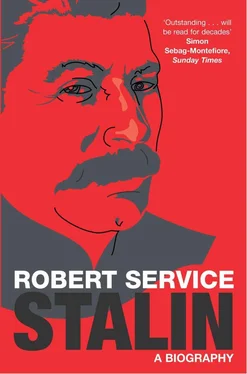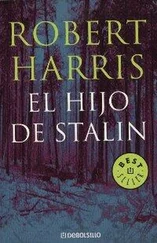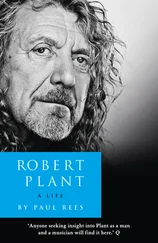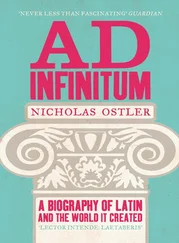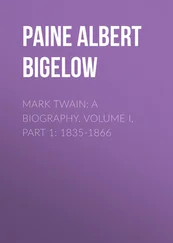The upbringing of young Dzhughashvili did not predetermine the career of Joseph Stalin. There were too many contradictions in his personality and parental treatment for a single possible result to be predictable. A lot more had to happen before psychological settlement occurred, and this included his particular experiences as well as events in the wider world. Yet without the childhood experienced by Joseph there would have been no Stalin. For the tree to grow there had to be a seed.
3. THE SCHOOLING OF A PRIEST
Joseph took time to benefit fully from his educational opportunity. Not having spoken Russian at home, he stayed in the preparatory classes for two years. But he proved a quick learner and already knew enough of the language to leap over the beginners’ class. He started the full course in September 1890. 1Beso Dzhughashvili had never liked the idea of his boy becoming a scholar. At some early stage of Joseph’s course at the Gori Spiritual School, 2there was a terrible row between Beso and Keke. The angry Beso triumphed and took Joseph back to Tbilisi with him to work at the Adelkhanov Shoe Factory. Joseph was to become an apprentice and drop Keke’s plan for him to enter the priesthood. 3Beso was a drunk and a failed artisan; but his attitude was not unusual. He insisted that what was good enough for him in employment was equally appropriate for his offspring.
The authorities categorised the Adelkhanov Shoe Factory as among the most decent in Georgia towards its eighty workers since, unlike rival factories, it had its own medical facilities. Yet most people thought Emile Adelkhanov, who had opened his enterprise in 1875, a harsh exploiter of his workforce. Wages were low and the conditions were especially harsh for young boys — indeed the same authorities worried about the large number of youngsters employed by Adelkhanov and about the effects on their health and upbringing in the grim, rectangular building. 4Adelkhanov was no philanthropist. When the terms of trade turned against him at the end of the century, he instantly cut wages. The result was a bitterly fought strike. 5For Beso Dzhughashvili, however, Adelkhanov’s cost-cutting recruitment of minors was a definite attraction. The extra money, however small initially, would come in useful: Joseph could start to pay his own way. He would not see much of the centre of Tbilisi with its palaces, cathedrals and grand shops. They lodged in a cheap room in the Avlabari district on the left bank of the River Mtkvari and each day walked down past the Metekhi Prison and over the bridge into the winding, cobbled streets of the Ortachala district where the factory stood. Joseph’s first encounter with capitalism was raw, harsh and dispiriting.
Yet he cannot have failed to note how different Tbilisi was from Gori. A mixture of cultures existed around the Adelkhanov Shoe Factory. Apart from the rival Mantashëv Shoe Factory there were synagogues for the Tbilisi Jews, several Armenian churches and half a dozen Georgian churches. Near by there were the sulphur baths used by the great Russian poet Alexander Pushkin earlier in the century. The entire area, including the gently bubbling stretch of the River Mtkvari, lay across hot springs valued for their medicinal properties. During his time in the factory, Joseph Dzhughashvili was being shown that a wider world of experience existed than he could possibly have imagined as a schoolboy in Gori.
If Beso had continued to prevail, there would have been no Stalin — and world history would have been different. To rise to the peak of the Russian Communist Party in the 1920s it was to be essential to have a fluent and plausible pen; and much as he resented the priests who taught him, Joseph owed them a lasting debt for his education. He was also beholden to his mother’s refusal to accept defeat. Doting on her departed son, she went to the priests in Gori and got them to help her to constrain Beso to release Joseph from factory work. Beso relented, and after a few months Joseph returned to his desk at the Spiritual School. Unsurprisingly he had not become a proficient cobbler in that brief period. His tasks had been limited to fetching and carrying for the adults in the factory. But he had seen enough of contemporary manufacturing to avoid a repetition of the experience. It proved to be his only opportunity to know industrial work directly, but not once did he refer to it in print. Although he was to write in later years about ‘the working class’ and ‘the factory system’, he was mostly drawing on conversations he had with workers of the sort he never became.
Beso Dzhughashvili began to fade from the lives of Keke and Joseph. It is not known how many times, if any, he returned to Gori. What is sure is that he never lived there for any lengthy time again. His drinking seems to have taken him over as he moved from job to job. There is a legend that Joseph murdered Beso. Not a scrap of evidence has been found for this and the truth was probably much more prosaic. Beso, having made a mess of his life, coped on his own. He worked in factories, drank in taverns and eventually lost all control of his life. According to some accounts, he died before the turn of the century; but the likelihood is that Beso, alone and destitute, died of cirrhosis of the liver in 1909. 6
In Beso’s absence, Joseph reverted to the exclusive care of his mother. Quite how Joseph dealt with the breakdown in his parents’ marriage and his father’s departure is unclear. But clues survive. When he published poems in 1895–6, ‘Besoshvili’ was among his pseudonyms. This was clearly not an accidental choice. Nor was the reference in one of his early articles to how the capitalist economy put independent craftsmen under huge commercial pressure and forced most of them to give up their workshops and enter factory employment. The conclusion is irresistible. Joseph did not share his father’s ambition for him. He did not like being beaten. He had erupted in fury at Beso’s ill-tempered demands and behaviour. But Joseph was a thoughtful as well as sensitive child. When he started to think as a Marxist, he came to see Beso as a victim of history. 7This would surely not have happened if, at the back of his mind, Joseph had not retained a feeling of affection and understanding for his father. This may appear paradoxical. Stalin, Beso’s victim, kept fond thoughts of the man who had maltreated him. This is not an unusual reaction. The fact that Beso had passed out of his life probably helped Joseph to sanitise his recollections.
Back in Gori, Joseph resumed the life of church, school and the streets. It was an eventful period. While standing outside church one day, Joseph was knocked down by a phaeton. This was a horse-drawn trap, typically with two or three seats for its occupants, primitive suspension-hoops and a simple set of shafts. Open to the air, it was one of the cheapest forms of carriage. The driver that day in Gori lost control of his horse. The phaeton careered towards the crowd by the church wall and young Joseph Dzhughashvili did not move out of the way in time. It could have been a fatal accident. 8
Although the boy’s left arm and his legs were badly damaged, he quickly recovered. 9Soon he was attending school again. The physical harm, however, was permanent. Joseph’s arm was left shortened and lacking in flexibility. It was to be the reason why he was not called up into the Imperial Army in 1916–17. Thus an unruly horse, by trampling the Gori youngster, was instrumental in saving him from potential annihilation in the Great War. The accident made him ungainly and apparently embarrassed about his appearance. Another point of psychological stress was added to the list. Nor did the injury enhance his prowess in the trials of strengths among the boys of the town. But he was determined to prove himself. Schoolmate Joseph Iremashvili recalled how young Dzhughashvili continued to use dirty methods to win his wrestling bouts. 10Nothing satisfied him except the leading position. He could not abide his friend David Machavariani heading their street gang. Sometimes he went off and joined another gang rather than accept orders from Machavariani. It was this kind of behaviour that led him to become known for his ‘bad character’.
Читать дальше
